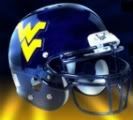Post by elp525 on Jul 8, 2010 4:42:44 GMT -5
Thursday July 8, 2010
by Mike Casazza
Daily Mail sports writer
MORGANTOWN, W.Va. -- For the third time in as many years, West Virginia University's primary athletic department fundraising organization ended the fiscal year with a record-setting haul.
Niles Eggleston, executive director of the Mountaineer Athletic Club, said the MAC closed its books June 30 for the 2009-10 fiscal year and recorded an unaudited total of $18.6 million.
The MAC reported audited totals of $15.01 million and $13.85 million the previous two years.
"First and foremost, we have the best fans in the nation," Eggleston said. "They are so passionate about this program and supporting it and being a part of it and helping our student-athletes achieve. We're going to keep raising money because the people love (WVU) and they're competitive and they want to keep doing it."
Eggleston, who was named the interim director in April 2008 and promoted to the full-time position that June, also pointed to the continued and coordinated effort to get in front of people to begin and refresh relationships with those who support the MAC.
For that, he had a lot of help.
"Quite honestly, our coaches do more to help us elevate our programs and do more for our relationships than maybe ever before," said Eggleston, who is also an assistant athletic director for development. "I was in Anaheim (Calif.) last week for our (National Association of Collegiate Directors of Athletics) convention and I spent a lot of time with a lot of people who don't get remotely close to the support we get from our coaches for our programs.
"I had a chance to do a presentation on some capital projects in front of many colleagues and some people came up to me afterward and said, 'How do you get the coaches to do all that they do?'"
At the end of the 2008-09 fiscal year, Eggleston said the MAC aimed at $17 million for the year just completed. The final audited number, once all gifts are recorded and reconciled with the WVU Foundation, will be well above that. The unaudited total last year was $15.4 million.
WVU received a boost at the end of this fiscal year from season ticket sales for football. Annual giving and the ticket priority for basketball and football benefit the MAC's annual fund. The fund usually takes up about two-thirds of the MAC's final total.
At the end of April - and two weeks before the priority deadline - WVU had sold only around 7,000 season tickets and was about 500 behind where it was a year earlier. Sales ended at about 22,500 at the priority deadline May 15, which was about even with the previous year. At the end of the month, and after forms postmarked at the priority deadline and received after had been processed, the total was around 29,750 - slightly behind the previous year's pace.
Director of Sports Marketing Matt Wells said WVU has sold about 33,000 season tickets. It's about 1,000 behind the previous year's pace, but the Mountaineers also are enjoying a 90-percent renewal rate.
Wells said WVU will release information later this week about re-opening season ticket sales to the public for the second straight football season. WVU didn't do that for the 2007 and 2008 seasons.
"A strong football season ticket base is a crucial element in the financial health of our department," Wells said. "A financially healthy department gives all of our teams the opportunity to compete for wins."
The MAC money is split four ways, with the great majority going to the annual fund. WVU's athletic department pays the scholarship bill to the university, which is around $7 million annually, plus other "general athletic department operating bills" out of the annual fund.
A smaller slice goes to capital projects and facility enhancements, and WVU has a long list of teams and projects that need the money.
Even smaller portions go to the endowment fund and then to "other" items, such as the football program's 1100 Club and the basketball program's Legacy Fund, which benefit costs associated with travel for the season and recruiting.
Most donors request that their donations go to a specific area.
Eggleston said about 65 percent will go to the annual fund, about 20 percent to the projects and enhancements, about 8 percent to the endowment and about 7 percent to the "other" areas.
"We're actually ahead of what our goal was," Eggleston said. "In this market, we still set pretty lofty goals to increase 15 percent overall every year. We're over 15 percent growth from last year to this year.
"That's credit to our program and its supporters. I think we'll raise more than $18.6 million next year - or whatever our final number is (for the 2009-10 fiscal year) - and make a push to get over that 15 percent goal."
Eggleston left meetings with his new boss, Athletic Director Oliver Luck, energized about the future. Luck has a history of fundraising, business operations and project management in different countries, sports and leagues.
Eggleston said the mix of a professional approach at the college level can benefit the MAC.
"He brings to the table a whole different way of thinking from a revenue-generating standpoint," Eggleston said. "I think we - our team here in the MAC - have an opportunity to learn a tremendous amount from him.
"He's a gas pedal guy. He wants to move forward. He's ready and willing to try new things and think outside the box, if you will, and get creative to provide the best opportunities we can for our coaches and student-athletes."
by Mike Casazza
Daily Mail sports writer
MORGANTOWN, W.Va. -- For the third time in as many years, West Virginia University's primary athletic department fundraising organization ended the fiscal year with a record-setting haul.
Niles Eggleston, executive director of the Mountaineer Athletic Club, said the MAC closed its books June 30 for the 2009-10 fiscal year and recorded an unaudited total of $18.6 million.
The MAC reported audited totals of $15.01 million and $13.85 million the previous two years.
"First and foremost, we have the best fans in the nation," Eggleston said. "They are so passionate about this program and supporting it and being a part of it and helping our student-athletes achieve. We're going to keep raising money because the people love (WVU) and they're competitive and they want to keep doing it."
Eggleston, who was named the interim director in April 2008 and promoted to the full-time position that June, also pointed to the continued and coordinated effort to get in front of people to begin and refresh relationships with those who support the MAC.
For that, he had a lot of help.
"Quite honestly, our coaches do more to help us elevate our programs and do more for our relationships than maybe ever before," said Eggleston, who is also an assistant athletic director for development. "I was in Anaheim (Calif.) last week for our (National Association of Collegiate Directors of Athletics) convention and I spent a lot of time with a lot of people who don't get remotely close to the support we get from our coaches for our programs.
"I had a chance to do a presentation on some capital projects in front of many colleagues and some people came up to me afterward and said, 'How do you get the coaches to do all that they do?'"
At the end of the 2008-09 fiscal year, Eggleston said the MAC aimed at $17 million for the year just completed. The final audited number, once all gifts are recorded and reconciled with the WVU Foundation, will be well above that. The unaudited total last year was $15.4 million.
WVU received a boost at the end of this fiscal year from season ticket sales for football. Annual giving and the ticket priority for basketball and football benefit the MAC's annual fund. The fund usually takes up about two-thirds of the MAC's final total.
At the end of April - and two weeks before the priority deadline - WVU had sold only around 7,000 season tickets and was about 500 behind where it was a year earlier. Sales ended at about 22,500 at the priority deadline May 15, which was about even with the previous year. At the end of the month, and after forms postmarked at the priority deadline and received after had been processed, the total was around 29,750 - slightly behind the previous year's pace.
Director of Sports Marketing Matt Wells said WVU has sold about 33,000 season tickets. It's about 1,000 behind the previous year's pace, but the Mountaineers also are enjoying a 90-percent renewal rate.
Wells said WVU will release information later this week about re-opening season ticket sales to the public for the second straight football season. WVU didn't do that for the 2007 and 2008 seasons.
"A strong football season ticket base is a crucial element in the financial health of our department," Wells said. "A financially healthy department gives all of our teams the opportunity to compete for wins."
The MAC money is split four ways, with the great majority going to the annual fund. WVU's athletic department pays the scholarship bill to the university, which is around $7 million annually, plus other "general athletic department operating bills" out of the annual fund.
A smaller slice goes to capital projects and facility enhancements, and WVU has a long list of teams and projects that need the money.
Even smaller portions go to the endowment fund and then to "other" items, such as the football program's 1100 Club and the basketball program's Legacy Fund, which benefit costs associated with travel for the season and recruiting.
Most donors request that their donations go to a specific area.
Eggleston said about 65 percent will go to the annual fund, about 20 percent to the projects and enhancements, about 8 percent to the endowment and about 7 percent to the "other" areas.
"We're actually ahead of what our goal was," Eggleston said. "In this market, we still set pretty lofty goals to increase 15 percent overall every year. We're over 15 percent growth from last year to this year.
"That's credit to our program and its supporters. I think we'll raise more than $18.6 million next year - or whatever our final number is (for the 2009-10 fiscal year) - and make a push to get over that 15 percent goal."
Eggleston left meetings with his new boss, Athletic Director Oliver Luck, energized about the future. Luck has a history of fundraising, business operations and project management in different countries, sports and leagues.
Eggleston said the mix of a professional approach at the college level can benefit the MAC.
"He brings to the table a whole different way of thinking from a revenue-generating standpoint," Eggleston said. "I think we - our team here in the MAC - have an opportunity to learn a tremendous amount from him.
"He's a gas pedal guy. He wants to move forward. He's ready and willing to try new things and think outside the box, if you will, and get creative to provide the best opportunities we can for our coaches and student-athletes."





